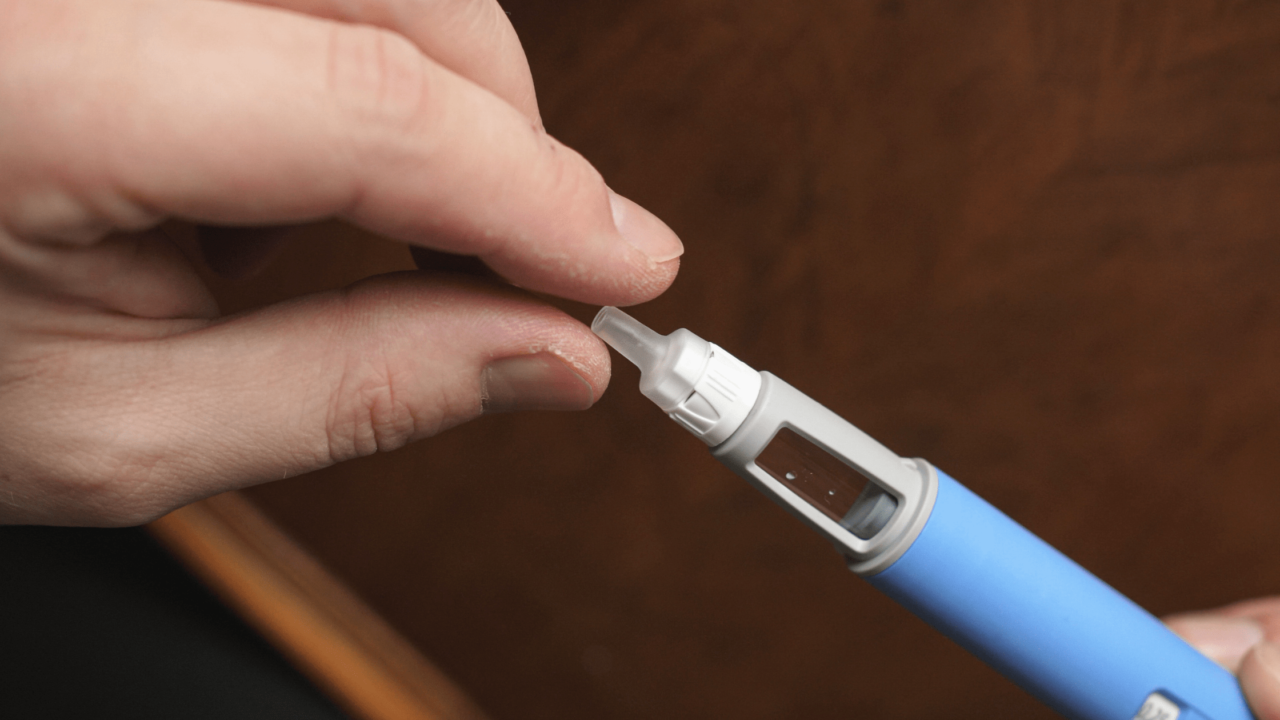Losing weight can be challenging, especially if you have a busy schedule, live in a remote area, or face other barriers to accessing health care. However, thanks to telehealth, you can now get professional help and support for your weight loss goals from the comfort of your home. Telehealth uses digital technology to provide health care services remotely, such as online consultations, prescriptions, referrals, and coaching. In this article, we will explore how telehealth can help you in your weight loss journey.
What are some ways to lose weight?

The basic principle of weight loss is to create a calorie deficit, which means burning more calories than you consume. This can be achieved by eating a balanced diet that is low in fat and sugar, and high in protein, fibre, and vegetables. A healthy diet can help you feel full, reduce cravings, and provide essential nutrients for your body. It would be best if you also aimed to drink plenty of water, limit alcohol intake, and avoid processed and junk foods.
Another key factor for weight loss is physical activity, which can help you burn calories, build muscle, and improve your metabolism. Physical activity can also boost your mood, energy, and overall health. It would help if you aimed to do at least 150 minutes of moderate-intensity weekly exercise, such as brisk walking, cycling, or swimming. You can also incorporate strength training, such as lifting weights or doing bodyweight exercises, to increase your muscle mass and tone your body.
However, losing weight is not only about diet and exercise. It is also influenced by your genetics, hormones, medical conditions, medications, and lifestyle factors. Some people may find it harder to lose weight than others or may experience plateaus or weight regain. That is why it is important to consult a health professional who can assess your situation, prescribe appropriate treatments, and monitor your progress.
What are the health benefits of losing weight?

Losing weight can have many benefits for your physical and mental health. Some of the benefits include:
• Lowering your risk of developing chronic diseases, such as type 2 diabetes, heart disease, stroke, high blood pressure, high cholesterol, and some cancers.
• Improving your blood sugar levels, blood pressure, cholesterol levels, and inflammation markers.
• Reducing your joint pain, back pain, and mobility problems caused by excess weight.
• Enhancing your sleep quality, breathing, and oxygen levels.
• Boosting your self-esteem, confidence, and body image.
• Increasing your energy, productivity, and mood.
According to the Australian Institute of Health and Welfare, losing 5% of your body weight can significantly improve your health outcomes and quality of life. For example, if you weigh 100 kg, losing 5 kg can make a big difference.
Can telehealth help you lose weight?
Telehealth can be a convenient and effective way to get professional help and support for your weight loss journey. Telehealth has the following advantages:
• Accessibility: You can access telehealth services from anywhere, through the phone or any device with an internet connection. This can save you time, money, and the hassle of travelling to a clinic or hospital. This can be especially beneficial if you live in a rural or remote area, have a disability, or have other commitments that make it hard to attend in-person appointments.
• Convenience: You can schedule telehealth appointments at a time that suits you, and choose the mode of communication you prefer, such as phone, video, or chat. You can also get your prescriptions, referrals, and test results delivered electronically, without having to visit a pharmacy or a lab.
• Continuity: You can get consistent and regular follow-up and feedback from your telehealth provider, who can track your progress, adjust your treatment plan, and motivate you to stay on track. You can also get access to online resources, such as educational materials, meal plans, exercise videos, and support groups, that can enhance your learning and engagement.
• Privacy: You can get telehealth services in a private and comfortable setting, such as your home or office, without having to worry about other people’s opinions or judgments. You can also get telehealth services from a provider who is not in your local area if you prefer to keep your weight loss journey confidential.
What are some health reasons that may impact your ability to lose weight?
Sometimes, losing weight can be harder than expected, even if you follow a healthy diet and exercise plan. This may be due to some underlying health conditions that affect your metabolism, hormones, or appetite. Some of these conditions include:
• Thyroid disorders: The thyroid is a gland that produces hormones that regulate your metabolism, energy, and growth. If your thyroid is underactive (hypothyroidism), it can slow down your metabolism and make you gain weight. If your thyroid is overactive (hyperthyroidism), it can speed up your metabolism and make you lose weight. Both conditions can also cause other symptoms, such as fatigue, mood changes, hair loss, and irregular periods. Thyroid disorders can be diagnosed by a blood test and treated with medication or surgery.
• Diabetes: Diabetes is a condition that affects how your body uses sugar (glucose) for energy. If you have diabetes, your body either does not produce enough insulin or does not respond well to insulin, which is a hormone that helps glucose enter your cells. This causes high blood sugar levels, which can damage your organs and nerves. Diabetes can also affect your weight, as high blood sugar can make you feel hungry and thirsty, and low blood sugar can make you crave sweets and carbs. Diabetes can be diagnosed by a blood test and treated with medication, diet, and exercise.
• Polycystic ovary syndrome (PCOS): PCOS is a condition that affects women’s hormones, ovaries, and periods. If you have PCOS, your ovaries produce too much of a male hormone called androgen, which can cause irregular periods, acne, excess hair growth, and infertility. PCOS can also affect your weight, as high androgen levels can make you gain weight, especially around your abdomen. PCOS can also make it harder to lose weight, as it can cause insulin resistance, which is a condition that makes your body less responsive to insulin. PCOS can be diagnosed by a blood test and an ultrasound, and treated with medication, diet, and exercise.
• Depression: Depression is a mood disorder that affects how you feel, think, and act. If you have depression, you may experience persistent sadness, hopelessness, guilt, loss of interest, low energy, and difficulty sleeping. Depression can also affect your weight, as it can change your appetite and eating habits. Some people with depression may eat more to cope with their emotions, while others may eat less due to a lack of interest or motivation. Depression can also make it harder to lose weight, as it can reduce your physical activity, self-care, and adherence to your weight loss plan. Depression can be diagnosed by a mental health professional and treated with medication, therapy, or both.
These are some common health conditions that may impact your ability to lose weight, but there may be others as well. If you suspect that you have a medical problem that is affecting your weight, you should consult our telehealth team, who can diagnose and treat your condition, and help you with your weight loss goals.
What is Ozempic? And why are people using it for weight loss?

Ozempic is a brand name of a medication called semaglutide, which is used to treat type 2 diabetes and obesity. It is a type of hormone called a glucagon-like peptide-1 (GLP-1) receptor agonist, which mimics the action of a natural hormone that regulates blood sugar and appetite. Ozempic works by stimulating the pancreas to produce more insulin, reducing the amount of sugar that the liver makes, and slowing down the digestion of food. This helps lower blood sugar levels and prevent diabetes complications. Ozempic also works by activating the brain areas that control hunger and fullness, making you feel less hungry and more satisfied. This helps reduce calorie intake and promote weight loss.
Ozempic is given as a once-weekly injection under the skin, using a pen device. The dose of Ozempic is usually started at 0.25 mg per week, and gradually increased to 0.5 mg or 1 mg per week, depending on your blood sugar levels and weight loss goals. Ozempic is not a substitute for a healthy diet and exercise, but rather an addition to your weight loss plan. Ozempic is not suitable for everyone and may cause side effects, such as nausea, vomiting, diarrhea, constipation, low blood sugar, and thyroid problems. Therefore, you should only use Ozempic under the guidance of a health professional who can prescribe it, monitor its effects, and adjust its dose as needed.
How can Phenix Health help you with your weight loss journey?

At Phenix Health, we offer a wide range of telehealth services that are available online 24/7, provided by Australian doctors and healthcare professionals. Phenix Health can help you with your weight loss journey with the following services:
• Online consultations: You can book an online appointment with a doctor or a nurse, who can assess your weight, health status, and weight loss goals. They can also prescribe medication, such as Ozempic, if appropriate, and refer you to other specialists, such as nutritionists, dietitians, or pathologists if needed. You can choose to have your consultation via phone, video, or chat, at a time that suits you.
• Specialist Referrals and Pathology Testing: Our online doctors and nurses can refer you to weight loss specialists through telehealth, like dieticians or nutritionists. They can also refer you for pathology testing, to learn more about what’s going on with your health through your blood results. This way, our healthcare team can provide a more accurate diagnosis and tailored treatment plan.
• Online prescriptions: Our doctors can provide electronic prescriptions for weight loss. With an e-script, you can get your prescriptions for weight loss medication delivered to your door through online pharmacies. You an also choose to pick your medication up from a nearby pharmacy. You can also get reminders and refills for your medication, and manage your prescriptions online.
• Online coaching: You can get online coaching from a nurse, who can provide support, education, and care coordination for your weight loss journey. You can get tips and advice on diet, exercise, lifestyle, and behaviour change, and get feedback and encouragement on your progress. You can also get access to online resources, such as meal plans, exercise videos, and support groups, that can help you stay motivated and accountable.
• Online monitoring: You can get online monitoring from a doctor or a nurse, who can track your weight, blood pressure, blood sugar, cholesterol, and other health indicators. You can also upload your test results, such as blood tests or urine tests, and get them reviewed and interpreted by your telehealth provider. You can also get alerts and notifications if your health status changes or if you need to adjust your treatment plan.
Phenix Health is a telehealth provider that can help you with your weight loss journey, by offering you online health services that are convenient, accessible, affordable, and high-quality. You can also take advantage of our bulk-billed service if eligible. Phenix Health can help you achieve your weight loss goals and improve your health and well-being. Book a consultation with Phenix Health today and start your weight loss journey.






Phenix Health delivers online health services 24/7 provided by Australian doctors and healthcare professionals.